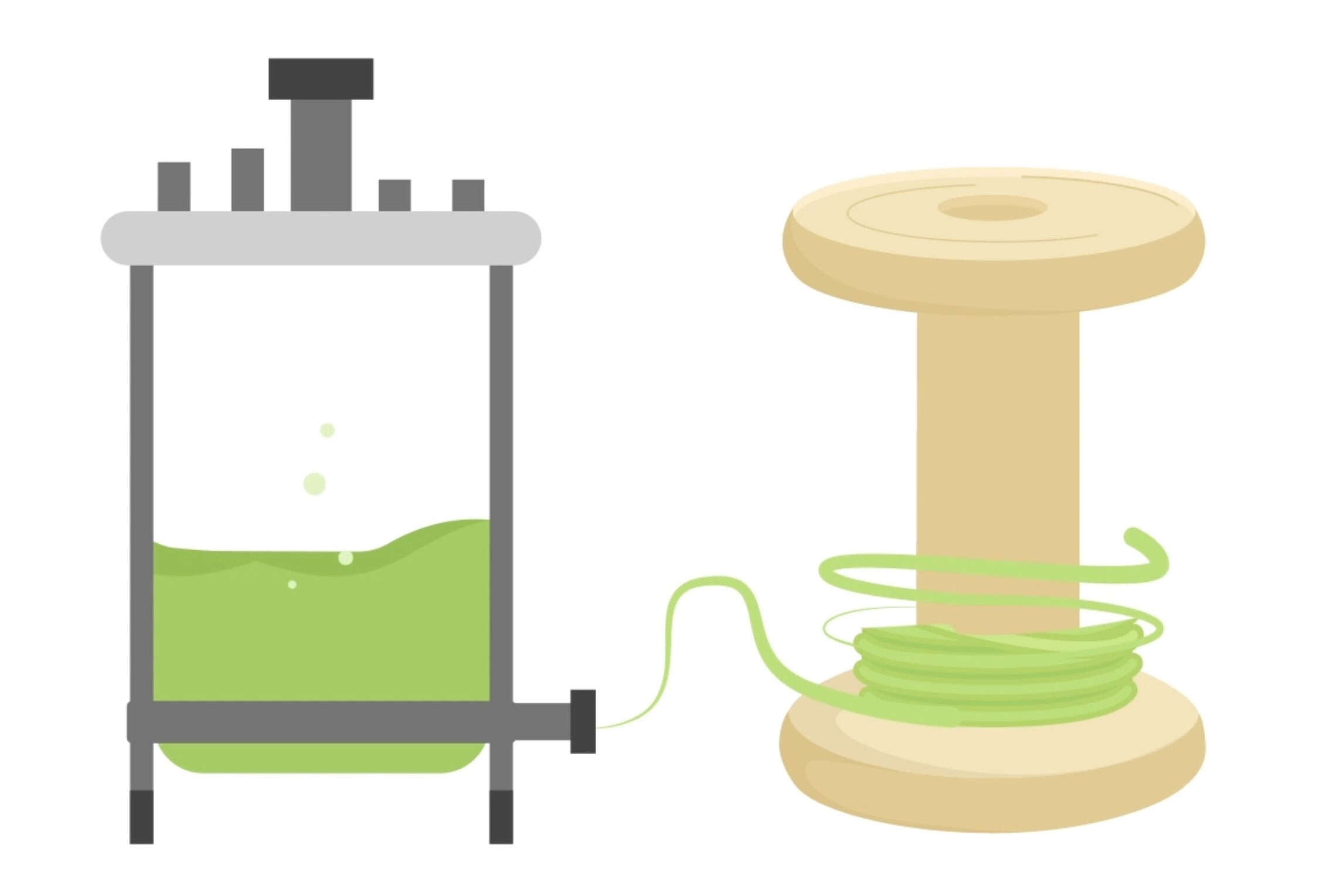
Synthetic fibres are common today across clothing, packaging, and industrial applications, but that does not make them good for the environment.
These fibres—90 tonnes per year—may prove practical to produce but they account for 8% of global emissions, and, worse, are infamous for their lack of recyclability.
A Canadian startup is seeking to shift the trend by mimicking the high performance of synthetic fibres using a combination of organic waste, seawater, genetically engineered bacteria, and a proprietary technological system.
The flagship product of Vancouver-based FIBR.BIO is a 100% biologically derived material offered as an alternative to the famous spandex material.
FIBR.BIO’s tech was developed through multiple years of work from cofounders Athanasios Kritharis, Jaiya Varshney, and Vikramaditya Yadav, who overcame hurdles to develop a system that could provide a cleaner alternative to today’s plasticized materials.
Spandex is hardly the only fabric FIBR.BIO wants to compete on; there are future plans to offer viable alternatives to waterproof shells, for example, and even kevlar.
The company claims its production process is carbon-negative and fully circular, generating zero waste.
Moving forward, FIBR.BIO is eager to scale the production of their technology and render the process more commercially viable.
Founded last year, the B.C. startup is currently a Top 10 Finalist in this year’s NVBC Competition.
The NVBC comp started in 2000 under the direction of Wal van Lierop to encourage regional innovation in tech and has been an icon of the local ecosystem ever since.
This year $250,000 in cash and prizes are at stake, with the winner taking home a $110K prize package.
On September 19, at an in-person event at the Stanley Park Pavillion, New Ventures BC will reveal the winner of this year’s competition.

Leave a Reply